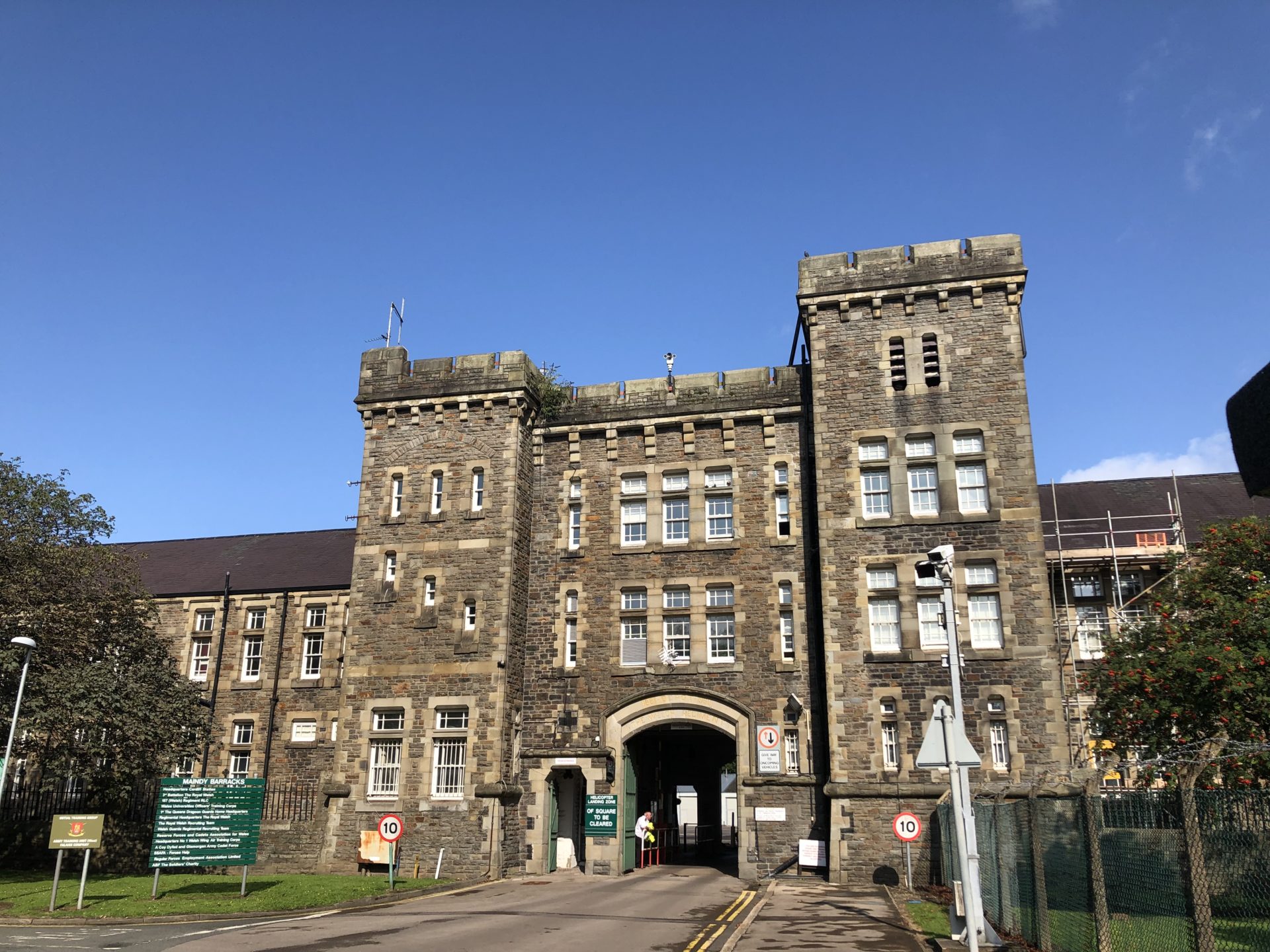Wales Maindy Barracks (8)
>> My present title is Major Tudor Price, MBE. In the Korean War, I was a sergeant in the First Battalion, the Welsh regiment. I joined the battalion in January, 1952 on a feature called the Shimyeondong Valley, and the feature in front was known as Hill 169. My date of birth was the 4th of the 2nd, 1929. Having been on a 12-hour patrol, up to my eyes in snow, I came back with the patrol, and this young officer put a tumbler of rum in my hand, and he said to me, "The King is dead. Long live the Queen." That was 2 days after my 23rd birthday, the 6th of February, 1952. Her Majesty, the Queen, came to the throne. I served in Korea right up until we left, which was in November 1952. By that time, the Korean War had become, as we were all concerned became static lines just like it was in the 1914, '15. The attacking forward up to the Yellow River led by General MacArthur had stopped and seized, and took over from the First Battalion. We lost a regiment, which was really wiped out. Now one of the things they handed over to us, like we took Korea, we took our regiment [INAUDIBLE]. They handed over to us a rabbit called Harvey. Do you remember the film, "Harvey," and the drunkard, played by Henry Fonda, I believe, or somebody or James Stewart. I can't remember. Anyway, we carried on patrolling the no-man's-land in between the North and the South, and this would continue for a number of months, and at one time, our B company did an attack on a hill called Hill 270, and this was fought on this hill feature called 355. Unfortunately, a lot of our boys were wounded and one or two killed. In fact, if you look at our title of our book of the Welsh Regiment, it lists 32. We lost 32 men killed in Korea and quite a number wounded. Now this book was compiled by the intelligence officer we had in Korea, a Lieutenant Norman Summon, who finally retired as Major Norman Summon, and he and the curator for the museum compiled the history of the Welsh Regiment in Korea in the Korean War. I should say, when I did arrive in Korea, I arrived after the battalion, and I landed at Busan in the south. Busan, in those days was a shanty-type of a city, [INAUDIBLE] city which had been devastated by war, and we were greeted by an American band that played us on ashore, and we then entrained right up to Seoul, and I think ... I can't quite remember. It was either Uijeongbu or Kumjongti, something like that, that we disembarked, and in fact at the end of the Korean War ... end of our joint in Korea, we handed over to the Duke of Wellington's Regiment, and again, we entrained at the same place in one of those two railway stations, and we embarked for Busan, where we got on the troop ship. Before we embarked the regiment went to the Commonwealth War Graves Cemetery, which is situated in Busan, and we held a service there to commemorate all those boys that we lost and were wounded or suffered whilst in the Korea. Whilst I was up in the line at one time, I was sent back to Seoul to carry out a ceremonial duty on a general that visited. His house man, the man that run his estate in Seoul, took us on tours of Korea ... Of Seoul, I should say, and we could see the devastation that was caused by when the North came down and, as you know, attacked the South, but in conclusion, I must say that the people of Korea have pulled themselves out of nothing and one of the leading people in this world today. Where we be? We'd be without out televisions and radios and so on. I thank the people of Korea, and I always enjoy the people, and in fact, I got this photo of platoon in Korea. That's a photo of my platoon, and on there are the house boys that looked after me or looked after us, I should say. They were apart of the Korean Service Corp. They came up first thing in the morning to make sure we were all right, help us with our chores, getting washed, getting dressed. We even shaved in the front line. If we didn't have water. We melted the snow, but those boys were very useful, and as I said earlier, we used to have a ration of 50 cigarettes in those days which I give to the house boy to thank him because not only did he keep an eye on me, he took my dirty washing down the hill to bring back a few days later. Now that is him. When we were out on the line, this is the picture that was taken of the sergeant's best that was in Korea. I'm on there as a very young 23-year-old, but will no conclude and say I was very, very proud for having served in Korea, and it noticed, other my first medal, my first two ribbons are the British Korean and the United Nations medal. I would now like to conclude this interview. Thank you very, very much indeed.
